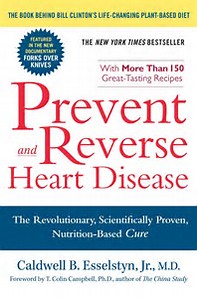 "Everything in moderation” is a quote commonly used in today’s society to justify the consumption of certain amounts of junk food. The companies most interested in having you believe that moderation is acceptable are the companies producing the most unhealthy products; products filled with sugar, fats and salt in order to make them palatable and addictive.
"Everything in moderation” is a quote commonly used in today’s society to justify the consumption of certain amounts of junk food. The companies most interested in having you believe that moderation is acceptable are the companies producing the most unhealthy products; products filled with sugar, fats and salt in order to make them palatable and addictive.
 Unfortunately, moderate amounts of ‘bad’ foods should not be part a health-promoting plan. For one thing, the vague definition of moderation is very subjective and no two people in the room will have the same interpretation. Does it mean you can have one can of soda a day? Or does it mean you can have one can of soda per week? How much soda is too much? At what point do we cross the line?
Unfortunately, moderate amounts of ‘bad’ foods should not be part a health-promoting plan. For one thing, the vague definition of moderation is very subjective and no two people in the room will have the same interpretation. Does it mean you can have one can of soda a day? Or does it mean you can have one can of soda per week? How much soda is too much? At what point do we cross the line?
People often tell me of their “moderation” rationalizations, especially if we’re dining out together and they’re choosing poorly from the menu. But what if someone consumes one pastry a week at a work meeting, a sausage pizza on Friday nights, an ice cream treat on Sundays, one weekly burger at lunch, small pieces of cheese on their salads, a little creamer in their coffee and an occasional candy bar at the check out line? Within one week’s time they’ve consumed a lot of terrible foods which do not support health, but do serve to keep any addictions alive and kicking.
 In his remarkable book Prevent and Reverse Heart Disease, Dr. Caldwell Esselstyn has an entire chapter titled “Moderation Kills” in which he references a meta-analysis review which demonstrates that heart patients who moderately reduce their fat intake are able to slow the progression of heart disease, but that the disease continues to progress and eventually takes its toll.(1) Another study published in 2015 of over 6800 adults, which assessed diets of moderation against obesity and Type 2 diabetes, concluded that those consuming the most diverse foods actually had the worst diets due to eating less fruit and vegetables and more processed meats, desserts and soft drinks. The researchers concluded: Our findings provide little evidence for benefits of diet diversity for either abdominal obesity or diabetes. Greater dissimilarity among foods was actually associated with gain in waist circumference. These results do not support the notion that “eating everything in moderation” leads to greater diet quality or better metabolic health.(2)
In his remarkable book Prevent and Reverse Heart Disease, Dr. Caldwell Esselstyn has an entire chapter titled “Moderation Kills” in which he references a meta-analysis review which demonstrates that heart patients who moderately reduce their fat intake are able to slow the progression of heart disease, but that the disease continues to progress and eventually takes its toll.(1) Another study published in 2015 of over 6800 adults, which assessed diets of moderation against obesity and Type 2 diabetes, concluded that those consuming the most diverse foods actually had the worst diets due to eating less fruit and vegetables and more processed meats, desserts and soft drinks. The researchers concluded: Our findings provide little evidence for benefits of diet diversity for either abdominal obesity or diabetes. Greater dissimilarity among foods was actually associated with gain in waist circumference. These results do not support the notion that “eating everything in moderation” leads to greater diet quality or better metabolic health.(2)
It’s not smart to stuff yourself with sweets…
(Proverbs 25:27a, MSG)
 The attractive trap of moderation is one of those slippery slopes to be avoided. Once we give ourselves permission to eat “in moderation”, we’ve now blurred the clear cut line of what foods are off limits and we’ve weakened our commitment to the pursuit of health. Instead, strive to choose health promoting foods whenever you get hungry. There are healthy and delicious ways to satisfy your sweet tooth! Sow the seeds of exceptional health versus moderate health. Much depends on it.
The attractive trap of moderation is one of those slippery slopes to be avoided. Once we give ourselves permission to eat “in moderation”, we’ve now blurred the clear cut line of what foods are off limits and we’ve weakened our commitment to the pursuit of health. Instead, strive to choose health promoting foods whenever you get hungry. There are healthy and delicious ways to satisfy your sweet tooth! Sow the seeds of exceptional health versus moderate health. Much depends on it.
(1) Dr. Caldwell B. Esselsytn, Prevent and Reverse Heart Disease (New York, Penguin Group, 2008),35-36(2) http://journals.plos.org/plosone/article?id=10.1371/journal.pone.0141341#abstract0; de Oliveira Otto MC, Padhye NS, Bertoni AG, Jacobs DR Jr, Mozaffarian D (2015) “Everything in Moderation – Dietary Diversity and Quality, Central Obesity and Risk of Diabetes.” PLoS ONE 10(10): e0141341. doi:10.1371/journal.pone.0141341
(Photos from Visual Hunt - with exception of Prevent and Reverse Heart Disease image).